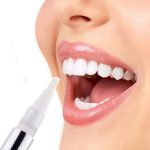

- Medications can cause dry mouth. Side effects of many prescription and nonprescription drugs, including drugs used to treat the following: depression, anxiety, pain, allergies, and colds (antihistamines and decongestants), obesity, acne, epilepsy, hypertension (diuretics), diarrhea, nausea, psychotic disorders, urinary incontinence, asthma (certain bronchodilators), and Parkinson’s disease. Dry mouth can also be a side effect of muscle relaxants and sedatives.
- Diseases and infections can cause dry mouth. Some medical conditions that may cause side effects are: Sjögren’s syndrome, HIV/AIDS, Alzheimer’s disease, diabetes, anemia, cystic fibrosis, rheumatoid arthritis, hypertension, Parkinson’s disease, stroke, and mumps.
- Medical treatments cause damage to the salivary glands; the glands that make saliva, can reduce the amount of saliva produced. For example, the damage could stem from radiation to the head and neck, and chemotherapy treatments, for cancer.
Common symptoms include: A sticky, dry feeling in the mouth; frequent thirst; sores in the mouth; sores or split skin at the corners of the mouth; cracked lips; a dry feeling in the throat; a burning or tingling sensation in the mouth and especially on the tongue; a dry, red, raw tongue; problems speaking or trouble tasting, chewing, and swallowing; hoarseness, dry nasal passages, sore throat; and bad breath.
Your Dentist may prescribe an oral rinse to restore mouth moisture. If that doesn’t help, he or she may prescribe a medication that boosts saliva production. You can also try these other steps, which may help improve saliva flow: suck on sugar-free candy or chew sugar-free gum; drink plenty of water to help keep your mouth moist; brush with a fluoride toothpaste, use a fluoride rinse, and visit your dentist regularly; breathe through your nose, not your mouth, as much as possible; use a room vaporizer to add moisture to the bedroom air; use an over-the-counter artificial saliva substitute to name a few…



